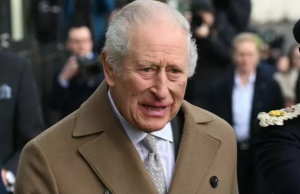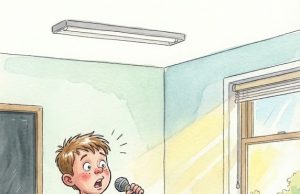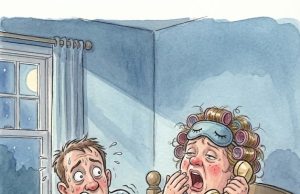How to reduce hypertension naturally and without medications
If you have high blood pressure (also known as hypertension), you may wonder if medication is necessary to bring the numbers down. But lifestyle plays a vital role in treating high blood pressure. Controlling blood pressure with a healthy lifestyle might prevent, delay or reduce the need for medication.
Here are some of the recommendations from the experts at MayoClinic

1. Losing weight reduces risks of Hypertension
Blood pressure usually increases as weight increases. One of the major lifestyle changes that can help reducing hypertension dramatically is Weight Loss. Most importantly – watch your waistline, as carrying too much weight around your waistline can put you at greater risk for hypertension.
Some of the ways to reduce weight is to drink plenty of water, avoid eating 2-3 large meals and instead spread it to 6-7 small adjusted meals per day, avoid drinking too much caffeine related drinks (like coffee), and also adopt the next lifestyle change..
2. Exercise regularly
Regular physical activity can lower your blood pressure by 4 to 9 millimeters of mercury (mm Hg) according to MayoClinic.
It’s recommended to do walking in faster pace for 40 minutes 3-5 times a week at least. Swimming for 40 minutes is recommended as an alternative for those who have difficulty walking. High impact physical activity for short periods isn’t effective for lowering blood pressure.
3. Eat healthily
Alot has been written about the benefits of the Dietary Approaches to Stop Hypertension (DASH) diet and reducing Sodium especially when it comes to high blood pressure.
This diet is based on reducing the amount of whole fats and cholesterol, limiting the consumption of Sodium and increasing the consumption of nutritients that can lower blood pressure, such as Potassium, Calcium and Magnesium. Also, the diet is rich in proteins and fibers.
In 2015 the DASH diet has won, for the 5th time in a row, the #1 diet by the U.S News & World Report, and it is also recommended by professional experts on the subject. And it’s effects on lowering blood pressure can be observerd pretty fast, even within 2 weeks after you start the diet, and especially in patients who suffer from very high blood pressure values.
The diet isn’t based on calories intake, but on consuming a given amount of different food types.
4. Reduce Sodium in your diet
Consuming too much Sodium creates high blood pressure. The western fast food is rich in sodium, therefore it is recommended to stop adding sodium to your food, know the foods that are rich in sodium, read and study the amount of sodium in every meal you eat, and prefer foods that are low in sodium.
The benefits of reducing sodium is highly beneficial especially in adults and those who are sensitive to sodium.
It’s also recommended to reduce the sodium intake to less than 2.4 per day.
5. Reduce the amount of alcohol your drink
Alcohol increases the risk of a stroke and reduces the efficiency of high blood pressure medications. Women and thin people are especially sensitive to the harmful effects of alcohol.
The amount of reduction in consuming alcohol should be gradual, because of the risk of a high rise in blood pressure that exists in a fast stop in alcohol consumption.
6. Quit Smoking
Smoking increases blood pressure.
Your blood pressure will start dropping even after 20 minutes after you turn off your last cigarette.
7. Sleep
This may seem like a minor thing, but studies have found direct correlation between lack of sleep and high blood pressure. Long work days, shifts, anxiety and the increase use of computers, smartphones and TVs at the late hours in the night, affect our sleep negatively.
A study published in 2012 in the Journal of Sleep Research found that people who showed early signs of hypertension managed to reduce it significantly, in 6 weeks alone where they went to sleep an hour earlier than they used to every night.
And according to the results of a study published in the International Journal of Behavioral Medicine, it turns out that an afternoon nap can help prevent hypertension. Subjects who slep at least for 45 minutes during the afternoon had a significantly lower blood pressure than those who didn’t.
8. Reducing stress
Stress is a major contributor to high blood pressure. Occasional stress also can contribute to high blood pressure if you react to stress by eating unhealthy food, drinking alcohol or smoking.
Some of the ways to eliminate stress include:
+ Breathing slowly and deeply – Practicing 10-15 minutes a day of breathing can lower blood pressure. Some breathing exercises exist to reduce stress such as the 4-7-8 exercise (inhale for 4 seconds, hold for 7 seconds, and exhale for 8 seconds).
+ Meditation – An ancient practice that works on quieting the mind and thoughts by concentrating on a single thing for 10-15 minutes, or longer, can help lower alot of “noise” in the mind, that contributes to reducing stress and therefore blood pressure.
+ Laughter and Music – Believe it or not, but simple and enjoyable things such as listening to music or laughter can help reducing stress and blood pressure as well.
9. Eating Blueberries
Eating Blueberries can help to protect and lower high blood pressure. In a research published in 2011 by the American Journal of Clinical Nutrition it was found that a bio-active ingredient that exists in the blueberries and called Anthocyanin provides protection against high blood pressure.
Anthocyanins are part of the family of Flavonoids and they exist in Raspberries, Blackcurrant, Eggplant and Blueberries. And out of all these foods, it was found that the highest impact for blood pressure exists in the blueberries.
Another researched published in late 2014 by The Journal of the Academy of Nutrition and Dietetics found that consuming one cup of blueberries everyday for 8 weeks will reduce blood pressure significantly.
Source: mayoclinic.org




















